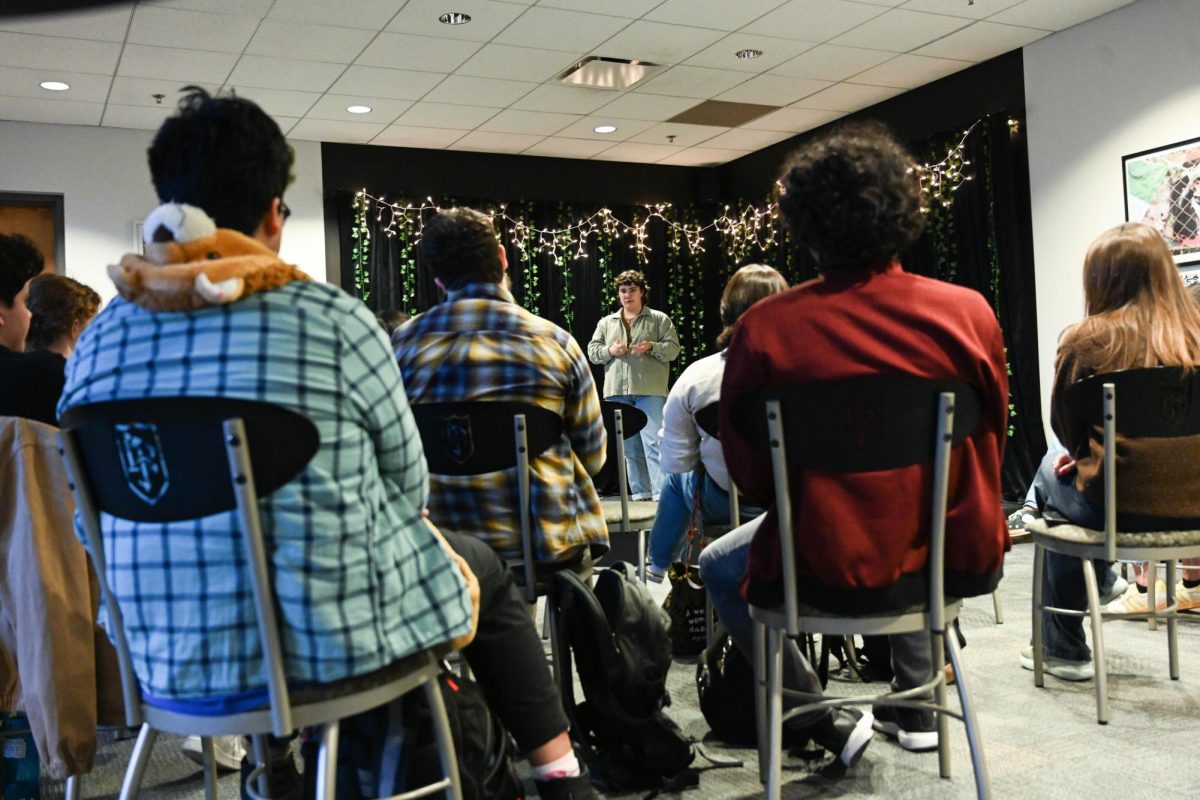Since returning to campus in early September, students have noticed a substantial decrease in food variety and staffing in Stav Hall. A number of factors including a staff shortage and difficulties with national supply lines, most of them related to COVID-19, are to blame.
Dean Pamela McDowell initially reached out to the student body about the issue via email on Sept. 14. Her email addressed the long lines in Stav, access to food at peak dining hours, staffing shortages, and lack of variety in the menu. Despite assurances from McDowell that St. Olaf’s food service provider Bon Appétit was working to resolve the issue, students were left with unanswered questions and fewer menu options than normal.
Traci Quinnell, the general manager of Bon Appétit at St. Olaf, largely echoed McDowell’s analysis of the situation. In an email to the Olaf Messenger, Quinnell explained that “Unfortunately, like many suppliers across the nation, our suppliers are short on some products they regularly have. And sometimes even if the products are in stock, labor shortages mean our suppliers don’t have warehouse workers or drivers to get these products to us.”
“The combination of these factors has been unprecedented in my experience in hospitality,” Quinnell added.
The supply chain concerns Quinnell cited are in fact a nationwide problem due to the ongoing COVID-19 pandemic.
The other major problem facing Bon Appétit is a labor shortage. McDowell and Quinnell cited the same combination of factors as explanations for the understaffing in Bon Appétit. McDowell’s original email to students and Quinnell’s email to the Messenger both said that “well-deserved retirements, ongoing COVID concerns, and a bevy of other variables has left the Caf team far from complete.”
McDowell went on to say that Bon Appétit workers receive “above average compensation packages.” The Olaf Messenger was unable to verify how much permanent employees of Bon Appétit at St. Olaf are paid.
Quinnell did not speak to employees’ compensation, but said that Bon Appétit is “working to hire more team members as soon as possible.”
Quinnell also characterized current employees as “dedicated” but “stressed.” Given that returning Bon Appétit employees have been working in-person jobs during a pandemic that has lasted a year and a half, their stress is unsurprising.
Neither McDowell nor Quinnell explained what the “bevy of other variables” might include.
Quinnell was able to confirm that Bon Appétit currently has fewer student employees than is typical for a school year. “I’m not sure why this is the case, but we are very interested in recruiting student workers,” she said.
The company guarantees jobs to any student with a work award and is the largest student employer on campus.
St. Olaf and Bon Appétit appear eager to reassure students that they are working to solve the issues in food service. Both McDowell and Quinnell emphasized that Bon Appetit and St. Olaf are running focus groups comprised of students to determine what changes needed to be made. However, as of this writing, only five students are signed up publicly for the Sept. 20 focus group.
Students have a number of other options at their disposal to share their feedback with Bon Appétit, including the comment cards outside Stav, a feedback form on Bon Appétit’s website, and direct communications with staff. Given the numerous avenues available to students, it is unclear what if any affect the focus groups will have.
It is unknown exactly how and when the issues in food service at St. Olaf will be resolved. The Bon Appétit staff and the College are aware of student concerns, and some aspects of Stav do appear to be returning to business as usual. Some problems, such as supply chain shortages, are largely dependent on COVID-19. Bon Appétit may be able to rectify other issues, like staffing shortages, by paying employees more and ensuring a safe working environment. It is unclear at this point what steps, if any, Bon Appétit may take in that direction.






